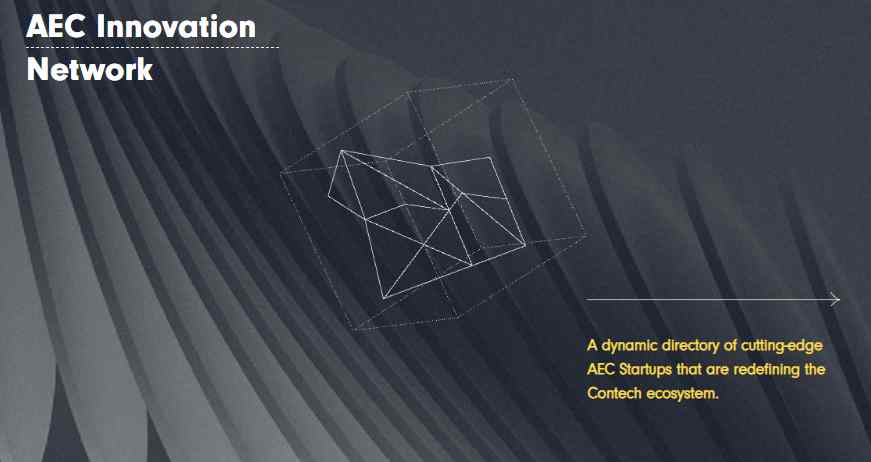The Architecture, Engineering, and Construction (AEC) industry is undergoing a rapid transformation driven by the digital age. This presents both challenges and opportunities for startups in the sector.
Table of Contents
Challenges for AEC Startups
- Fragmented Industry: The aec software development industry is highly fragmented, with many small and medium-sized firms. This can make it problematic for startups to gain traction and compete with established players.
- Complex Regulatory Environment: The AEC industry is subject to a complex set of regulations and standards. Startups must navigate this complex landscape to ensure compliance.
- Resistance to Change: The AEC industry is traditionally slow to adopt new technologies. Startups must overcome this resistance to change in order to introduce their innovative solutions.
- Data Security Concerns: The AEC industry handles sensitive data, such as building plans and financial information. Startups must ensure that their products and services are secure to protect this data.
- Talent Acquisition and Retention: The AEC industry is facing a shortage of skilled talent. Startups must find ways to entice and retain top talent to compete effectively.
Opportunities for AEC Startups
- Digital Transformation: The AEC industry is ripe for digital transformation. Startups can develop innovative solutions that improve efficiency, productivity, and sustainability.
- Data-Driven Decision Making: The AEC industry is increasingly reliant on data to make informed decisions. Startups can develop tools and platforms that help AEC firms collect, analyze, and use data to improve their operations.
- Building Information Modeling (BIM): BIM is a growing trend in the AEC industry. Startups can develop BIM-enabled tools and platforms that streamline workflows and improve collaboration.
- Emerging Technologies: Emerging technologies such as artificial intelligence (AI), virtual reality (VR) and augmented reality (AR), have the potential to revolutionize the AEC industry. Startups can develop innovative applications for these technologies.
- Sustainability: Sustainability is a major focus for the AEC industry. Startups can develop solutions that help AEC firms design and construct more sustainable buildings.
To succeed in the digital age, AEC startups must be aware of both the challenges and opportunities that they face. By developing innovative solutions that address the industry’s needs, startups can make a significant impact on the future of AEC.
Strategies for AEC Startups to Overcome Challenges and Seize Opportunities
here are some strategies for AEC startups to overcome challenges and seize opportunities in the digital age:
Focus on a Specific Niche
Instead of trying to compete with established firms in all areas, AEC startups should focus on a specific niche where they have a competitive advantage. This could be based on their expertise, technology, or target market. By focusing on a niche, startups can become the go-to experts in that area and build a strong reputation.
Develop a Strong Value Proposition
AEC startups need to clearly articulate the value that their solutions offer to clients. This means understanding the specific needs of their target market and developing solutions that address those needs in a way that is better, faster, or cheaper than existing solutions. Startups should be able to quantify the value of their solutions in terms of cost savings, time savings, or improved quality.
Build Partnerships with Established Firms
Partnering with established firms can help AEC startups gain access to resources and market reach that they would not have on their own. Established firms can provide startups with funding, mentorship, and access to their customer base. In return, startups can provide established firms with access to new technologies, innovative ideas, and fresh talent.
Invest in Talent
Attracting and retaining top talent is dangerous for AEC startups. Startups should invest in training and development programs to create a culture of innovation. They should also offer competitive compensation and benefits to attract and retain the best and brightest.
Embrace Technology
AEC startups should embrace technology to improve efficiency, enhance sustainability, and create new markets. This could include using technology to automate tasks, collect and analyze data, or develop new products and services.
Be Customer-Centric
AEC startups should always be putting the needs of their customers first. This means listening to their feedback, understanding their challenges, and developing solutions that meet their specific needs. Startups should build relationships with their clients and strive to become trusted partners.
Be Agile
The AEC industry is constantly changing, so startups need to be agile and adaptable. This means being able to quickly pivot to new opportunities and change course when necessary. Startups should also be open to new ideas and feedback from their customers and partners.
Be Persistent
Success in the AEC industry doesn’t happen overnight. Startups need to be persistent and determined to achieve their goals. They should not be discouraged by setbacks and should always be looking for new ways to improve their business.
By following these strategies, AEC startups can overcome the challenges and seize the chances that lie ahead in the digital age. The future of the AEC industry is bright, and startups that are innovative, adaptable, and customer-centric are well-positioned for success.
Conclusion
The digital transformation of the architecture, engineering, and construction (AEC) industry is creating a wave of opportunities for startups that are innovative, adaptable, and customer-centric. By focusing on a specific niche, developing a strong value proposition, building partnerships with established firms, investing in talent, embracing technology, being customer-centric, being agile, and being persistent, AEC startups can overcome the challenges and seize the opportunities that lie ahead in the digital age. The future of the AEC industry is bright, and startups that are well-positioned for success can play a key role in shaping the industry of the future.

